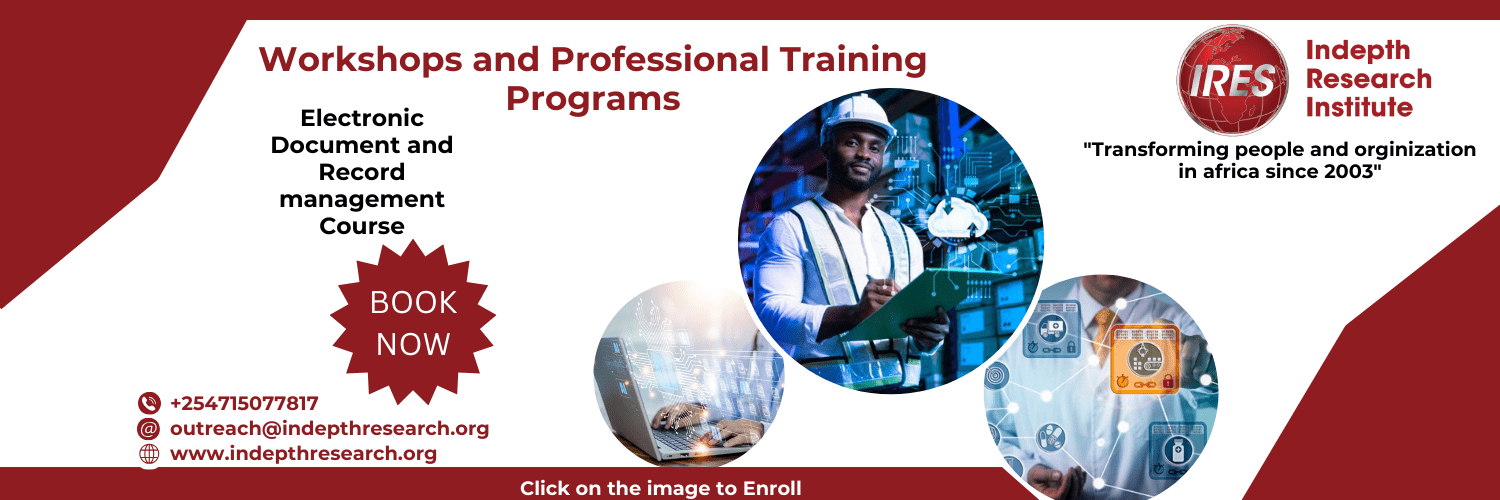Contents
- 1 Introduction
- 2 The Digital Revolution: A Paradigm Shift
- 2.1 The Need for Digital Records Management Classes
- 2.2 The Business Case for Digital Records Management
- 2.3 Challenges in Embracing Digital Records Management
- 2.4 The Future of Digital Records Management
- 2.5 Frequently Asked Questions (FAQs)
- 2.5.0.0.1 What is digital records management, and why is it important?
- 2.5.0.0.2 What are the key benefits of transitioning to digital records management?
- 2.5.0.0.3 How can digital records management classes benefit me or my organization?
- 2.5.0.0.4 Are there legal requirements for digital records management?
- 2.5.0.0.5 What are some common challenges in adopting digital records management?
- 3 Conclusion
Introduction
In an era marked by unprecedented technological advancements, the business landscape is evolving at a breakneck pace. The transition from traditional paper-based recordkeeping to digital records management is not just an option but a necessity. This transformation has given rise to a growing demand for digital records management classes, as organizations grapple with the challenges and opportunities presented by the Information Age.
The Digital Revolution: A Paradigm Shift
Read Also: Digital Archiving: Navigate Challenges and Solutions
Moreover, the advent of the digital revolution has brought about a paradigm shift in how organizations handle their information. Gone are the days of overflowing file cabinets, dusty archives, and the tedious task of manually sifting through heaps of paper to locate a single document. Instead, we now have the power to harness cutting-edge technology to store, organize, and access data with unparalleled ease and efficiency.
The benefits of this shift are manifold. Managing records digitally not only reduces the physical footprint of documents but also enhances data security, streamlines workflow processes, and facilitates remote access. Furthermore, it opens up opportunities for advanced data analytics and artificial intelligence applications, which can provide invaluable insights for decision-making.
The Need for Digital Records Management Classes
However, as organizations embark on this digital transformation journey, the need for employees skilled in digital records management becomes apparent. Digital records management classes have emerged as a crucial resource for individuals and organizations looking to navigate this new terrain effectively.
Understanding Digital Ecosystems: Digital records management classes provide a comprehensive understanding of the digital ecosystems within organizations. However, participants learn about the various types of digital records, the platforms used for storage, and the importance of metadata in efficient record retrieval.
Data Security: With cyber threats becoming increasingly sophisticated, it’s essential to ensure the security of digital records. However, these classes teach best practices in data encryption, access control, and data recovery to protect sensitive information.
Compliance and Legal Requirements: Organizations must adhere to various compliance regulations when managing digital records, such as GDPR or HIPAA. However, digital records management classes help participants grasp these legal requirements and implement strategies to ensure compliance.
Workflow Optimization: Efficient workflow processes are vital for productivity. However, these classes delve into how digital records management can streamline processes, automate repetitive tasks, and enhance collaboration among team members.
Retention and Disposal: Knowing when to retain or dispose of digital records is crucial for maintaining an organized and compliant digital repository. However, digital records management classes educate participants on records retention policies and the responsible disposal of records.
Subscribe here to get notification of more of such articles.
The Business Case for Digital Records Management
Investing in digital records management classes isn’t just about compliance and data security; it’s a strategic move that can yield significant returns for businesses. Let’s explore some of the compelling reasons why organizations should prioritize this investment.
Cost Savings: The shift to digital records significantly reduces the costs associated with physical storage, printing, and paper documents. Moreover, the time saved in searching for records can lead to increased productivity.
Decision-Making: Moreover, Digital records improves decision making as records are easily searchable and can be analyzed for insights. This can empower organizations to make data-driven decisions that can enhance competitiveness and profitability.
Customer Service: Quick access to digital records enables organizations to respond to customer inquiries faster and with greater accuracy, leading to improved customer satisfaction. Thus, it enhances customer service.
Disaster Recovery: Furthermore, Digital records are less susceptible to physical damage in the event of disasters like fires or floods. Robust disaster recovery plans are often part of digital records management strategies.
Scalability: Moreover, as organizations grow, their data needs expand. Digital systems are highly scalable, allowing organizations to adapt without a major overhaul of their information management infrastructure.
Challenges in Embracing Digital Records Management
While the benefits of digital records management are evident, the transition is not without its challenges. However, these hurdles underscore the importance of comprehensive digital records management classes.
Resistance to Change: Employees may resist the shift from familiar paper-based systems to digital platforms. However, digital records management classes can help ease this transition by building confidence and competence.
Data Security Concerns: Security concerns may trigger the fear of data breaches. However, managing records digitally emphasize the importance of robust security measures and educate employees on how to safeguard sensitive information.
Technical Expertise: Managing digital records often requires technical expertise. However, these classes bridge the knowledge gap by providing training on the use of digital records management software and tools.
Integration with Existing Systems: Many organizations have legacy systems in place. However, integrating digital records management seamlessly with these systems can be challenging but is essential for a smooth transition.
Sustainability: The environmental impact of increased digitalization, including energy consumption and e-waste, is a concern. However, digital records management classes can explore sustainable practices in information management.
The Impact of Artificial Intelligence on Records Management
The Future of Digital Records Management
Looking ahead, the importance of managing data digitally will only continue to grow. Moreover, with the rise of remote work and the increasing volume of data generated daily, organizations must adapt to thrive in this new environment.
Digital records management classes must evolve to address emerging trends, such as the use of blockchain for enhanced data security and the integration of artificial intelligence for automated record classification and retrieval. Consequently, the ethical considerations surrounding data privacy and consent will become increasingly central to digital records management education.
Frequently Asked Questions (FAQs)
Navigating the realm of digital records management can raise several questions. Below, we address some of the most common inquiries regarding this crucial aspect of modern information management.
What is digital records management, and why is it important?
Digital records management is the systematic practice of creating, organizing, storing, and maintaining digital records within an organization. It’s important because it streamlines information access, improves data security, reduces costs associated with physical storage, and enhances compliance with legal and regulatory requirements.
What are the key benefits of transitioning to digital records management?
Transitioning to digital records management offers several benefits, including reduced storage costs, enhanced data security, improved workflow efficiency, better disaster recovery capabilities, and the ability to make data-driven decisions through data analysis.
How can digital records management classes benefit me or my organization?
Digital records management classes provide essential knowledge and skills for effective information management in the digital age. They can help individuals and organizations understand digital ecosystems, ensure compliance, optimize workflow processes, and master data security measures.
Are there legal requirements for digital records management?
Yes, there are often legal and regulatory requirements that organizations must adhere to when managing digital records. These requirements vary by industry and location but may include regulations like GDPR, HIPAA, or industry-specific standards. Digital records management classes can help organizations understand and meet these legal obligations.
What are some common challenges in adopting digital records management?
Common challenges include resistance to change, concerns about data security, the need for technical expertise, integration with existing systems, and addressing sustainability concerns related to increased digitalization. Digital records management classes often address these challenges to facilitate a smoother transition.
Conclusion
In conclusion, the transition to digital records management is not a choice but a necessity in the Information Age. The demand for digital records management classes is driven by the benefits of this transformation and the challenges organizations face in navigating it. By embracing digital records management and investing in education and training, organizations can unlock the full potential of their data, enhance operational efficiency, and stay competitive in an ever-evolving business landscape.
About Me
I am an experienced digital marketing professional dedicated to achieving online success. With a strong background in SEO, social media, content creation, graphic design, video editing, content marketing, and social listening, I bring a comprehensive skill set to help businesses thrive in the digital landscape.











![How To Learn Programming From Scratch [2023 Guide]](https://blog.indepthresearch.org/wp-content/uploads/2023/01/istockphoto-1356364268-612x612-2-510x344.jpg)

Comment here